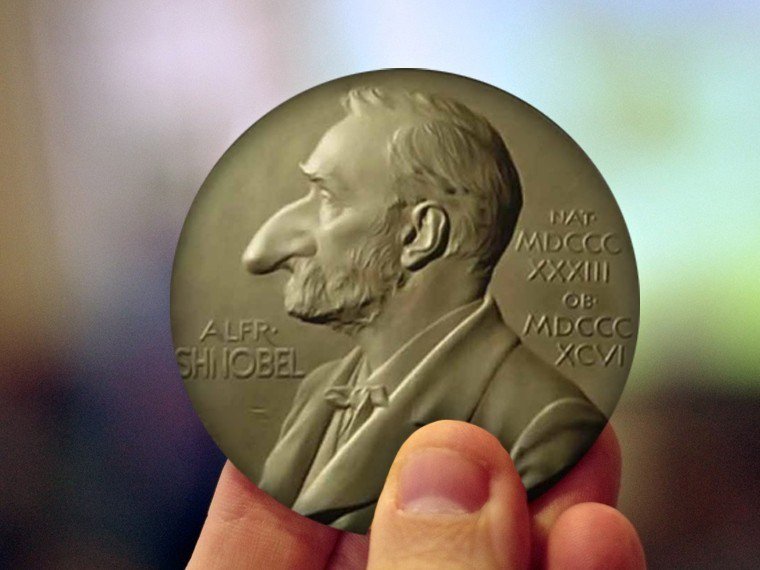
Harvard University hosted the 28th annual prize for the most bizarre scientific research. Tell, who this year received a prize of 10 trillion Zimbabwean dollars.
1. Food
A group of British scientists led by James Cole has shown that in Paleolithic times people were engaged in cannibalism for the sake of survival. Human flesh is extremely nutritious: only 125 calories. It does not go to any comparison with the meat of mammoths and bison, so cannibalism is simply irrational, say the researchers.
2. Chemistry

The IG Nobel prize in chemistry was awarded for a study of the cleaning properties of saliva. The authors believe that this method outperforms alcohol and solvents. Especially if you apply saliva on the gilded surfaces.
3. Medical education
The award has gone to a Japanese researcher Akira Horiuchi for the study of independent sitting colonoscopy. It need to sit in front of the monitor, left hand to hold the remote control of the colonoscope and the right to enter his colon. The scientist believes that this is a very simple and effective method.
4. The world
The Committee praised the work of the team of scientists who investigated how frequently and how emotionally swear the drivers in Spain. In the course of the 1100 experiments, the authors found that the cause of aggression is often fatigue, stress and individual characteristics. And yet scientists have calculated that one in four drivers in the world expresses their emotions behind the wheel swearing.
5. Economy
Experts from Canada, China, Singapore and the United States decided to see what would happen if you let the office staff make fun of the voodoo doll of his boss. It turned out that the act of retaliation gives employees a sense of calmness and a sense of restored justice.
6. Literature

The prize in literature went to scientists under the leadership of Altea Blackler: they proved that people usually do not read the instructions to the complex products do not use all their capabilities. Based on a survey of 170 people they also found that men read the instructions more often than women, and young people less than Mature.
7. Biology
Scientists from the Swedish Academy of agricultural Sciences found that people may taste to determine the wine, which was visited by the fly. It turns out that people are able to identify the pheromones of female Drosophila even in minimum concentrations. However, it remains unknown why do we need such ability.
8. Anthropology
Researchers from Sweden proved that people copy a chimpanzee no less than do chimpanzees. To this conclusion they came, watching the visitors to zoos.
9. Medicine
The American experts found that riding a roller coaster may accelerate the exit of kidney stones. Thus, according to the study, an important number of the car: drive the tail of the train increases the probability of success from 16 to 64% compared to the ride in the first trailer.
10. Reproductive medicine
The jury assessed budget method of determination of violations of erectionproposed by the group of scientists back in 1980. the point is to put on penis rings stamps: if the morning strip will remain integral, so night erections were not, and the men there are violations. Yes, just like in the TV series “Sex in the city”.
Scientists are not sitting idle: they had proven that 80% of rubber toys threaten children’s health. Details – in the article “Danger! Rubber ducks for the bath”.
